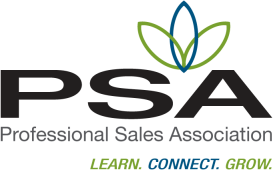By Bill Hellkamp
Looking at the caller ID on your phone you see that it’s the salesperson from one of your suppliers. Brad’s not a bad guy but you know he’s going to ask for a visit and you’re very busy. The meeting will start with the normal pleasantries, and then he will ask how the product is working out. Eventually, he will get around to the real reason for his visit, “Can we give him an order?” Usually it’s a normal ask, but sometimes you can tell he needs a sale to hit his quota or to win some kind of contest. That’s when you know you can negotiate the price down on him. In any event, he doesn’t really bring any new value when he comes and you are very busy. Letting it roll over to voicemail, you realize you won’t be returning his call.
 If you are a buyer you have lived through this scenario on numerous occasions. If you are a salesperson, it is likely that your clients have had these same reactions to your calls and handled them in a similar way. Perhaps you don’t even realize it’s happening much less have a process for improving the situation. Some salespeople will rationalize that their customers “are really busy” or blame it on a general disdain for salespeople. While these factors may come into play, a salesperson that consistently provides value to their clients is not treated this way. Instead, their phone calls are welcomed because they are seen as valuable resources to their buyers. Here is how you can be seen in the same light by your customers.
If you are a buyer you have lived through this scenario on numerous occasions. If you are a salesperson, it is likely that your clients have had these same reactions to your calls and handled them in a similar way. Perhaps you don’t even realize it’s happening much less have a process for improving the situation. Some salespeople will rationalize that their customers “are really busy” or blame it on a general disdain for salespeople. While these factors may come into play, a salesperson that consistently provides value to their clients is not treated this way. Instead, their phone calls are welcomed because they are seen as valuable resources to their buyers. Here is how you can be seen in the same light by your customers.
- Respond quickly to requests – The speed with which you respond to the needs of the client communicates to them their level of importance. Slow service means they’re not important. Quick service means that they are. Clients will naturally gravitate to those suppliers that make them feel important. In the past this could be difficult if we were on the road, but with our current level of communication there is no excuse for not getting back to them in a timely manner. By the way, this is the minimum level of service for any sales professional, much less one who wants to be seen as a true resource.
- Provide useful and timely information – While you will be providing information to the customer when they make a request, this resource action takes you a step further. Here we are taking our knowledge of the customer and their industry and putting it to use. As you continue to study your product and the industry, look for pieces of information (articles, whitepapers, etc.) that the client might find useful and interesting. Send them on to the client with a personal note. This will improve your relationship in two ways:
- You are keeping your name in front of them without asking for an order.
- The information you choose demonstrates your understanding of their issues.
- Learn about their company – Most sales professionals regularly spend time learning about their product or service. This is wise as their customers will expect a certain level of expertise. But being seen as a resource means that you should be learning about your client’s business as well, not just how your product will help them, but how they are situated in their marketplace. The more you learn about their business, the more you will be able to position your product as competitive edge rather than merely a solution to a problem.
- Make connections – Networking with great people is a key way of developing yourself professionally. Allowing your clients into the network by making connections for them builds mutual trust and develops your relationships beyond the office.
- Your company – You are not the only resource in the organization. By introducing your client to others in the organization that can help them, you will allow your service level to stay high, even when you are not available.
- Other resources – You should be building your network and keeping in contact with experts that can help you and others (LinkedIn is a great tool). As you work with your clients, listen for opportunities to put them in contact with people you know can be helpful to them. Not only will you strengthen the connection with your clients, but you will build bonds with those in your network.
- Become an expert in the industry – The ultimate goal of the professional is to become an industry expert, someone who is recognized for their knowledge and skills, someone who speaks at conferences and write articles. You can start with a blog or write for your company publication. Pick a topic in the field that really excites you. Look for opportunities to speak locally and build your reputation. These are the professionals that customers seek out for advice. You will become a resource, not only for your customers but for the whole industry.
When you are a resource, the scenario outlined at the beginning of this article  changes. Instead of dreading your call, customers are eager to talk to you. Because your more frequent communications are mostly informative, when you do ask for the order it is not so awkward. And you may find that much more often the customer is calling you to give you the order.
changes. Instead of dreading your call, customers are eager to talk to you. Because your more frequent communications are mostly informative, when you do ask for the order it is not so awkward. And you may find that much more often the customer is calling you to give you the order.
Bill Hellkamp is the owner of REACH Development Systems and can be contacted at 612-247-4155 or bill.hellkamp@reachdev.com
